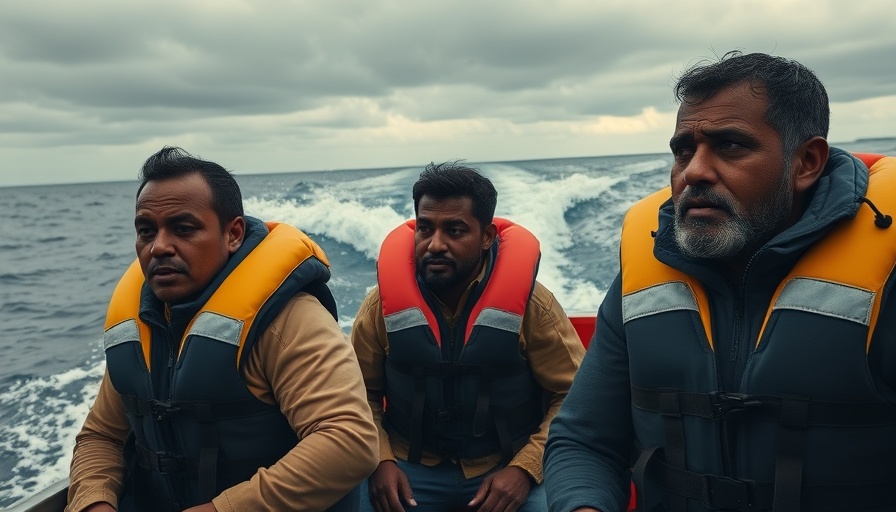
Venezuelans Taking Dangerous Steps
In a situation that highlights the struggles faced by many Venezuelan migrants, thousands are opting to return to Venezuela instead of attempting to cross the United States border. This decision, although showcasing the impact of U.S. immigration policies, is not without peril. Many face threats similar, if not worse, than those that drove them from home in the first place.
A Family’s Journey to a Broken Dream
People like Junior Sulbarán symbolize the heartbreaking reality of these migrants. Having fled Venezuela with his infant daughter only to face a discouraging message from U.S. officials, he represents countless others caught in this cycle. His family, like many others, had trekked through the treacherous Darién Gap and reached as far as Mexico City. However, the hostile environment articulated by U.S. Homeland Security Secretary Kristi Noem has left them feeling left with no choice but to return to Venezuela.
The Influence of U.S. Immigration Policies
Recent policies implemented during Trump’s administration have significantly shaped the risks migrants are willing to take. With messages warning against illegal crossings and strict enforcement measures, many feel pressured to self-deport. This government stance places potential immigrants at greater risk—whether they attempt the journey to the U.S. or face their own dangers on the return trip to Venezuela.
The Harsh Reality of a Return Journey
For the migrants headed back to Venezuela, the journey is fraught with dangers including robbery and kidnapping, reminiscent of the earlier treks northward. This perilous return illustrates the unfortunate reality of their situation: escaping one danger only to face another. It emphasizes how migrant experiences are often intertwined with policies that overlook their humanity and the struggles they faced.
A Broader Context: Understanding Migration Trends
This phenomenon of self-deportation calls for a thorough examination of the factors driving migration and the resulting policies. As migration patterns continue to shift, it is crucial to understand the motivations of the individuals making these difficult choices. Whether due to economic reasons, violence, or hope for a better future, each person's story deserves attention.
Future Predictions: What Lies Ahead for Vulnerable Migrants?
As the political landscape evolves, the future of migrants like those returning to Venezuela remains uncertain. Will U.S. policies shift to reflect a more compassionate understanding of these individuals’ experiences? Or will continued pressure push even more families into dangerous journeys back to a land they sought to escape?
Human Stories Behind Policy Decisions
Understanding individual stories—like that of Junior Sulbarán's family—can influence public perception and policy decisions. Every migrant has a narrative that adds depth to the statistics, revealing the human costs tied to immigration policies. Engaging with these stories can foster empathy and perhaps lead to more humane policies in the future.
Moving Beyond Political Rhetoric
Ultimately, political leaders need to recognize their policies' human impact and work toward solutions that prioritize migrant safety and rights. Engaging in dialogues that include the voices of those affected can create a more informed public and encourage action to support vulnerable populations.
In the face of these challenges, it’s up to society to advocate for change that will protect and empower rather than punish those seeking a better life.
 Add Row
Add Row  Add
Add 




 Add Row
Add Row  Add
Add 

Write A Comment